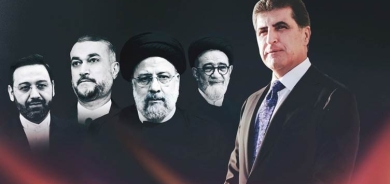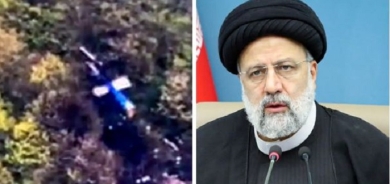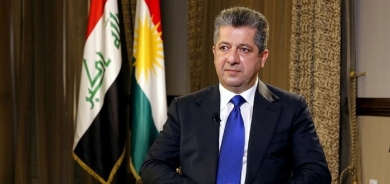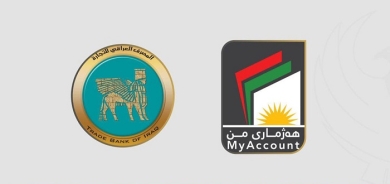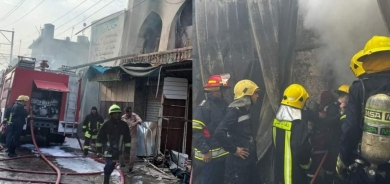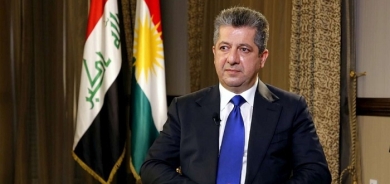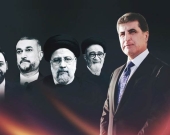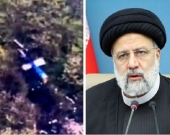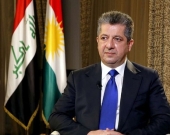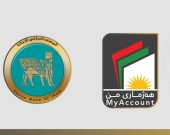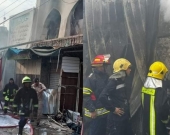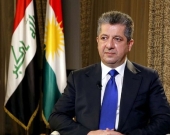Kurdish leader: No to arming the Syrian opposition
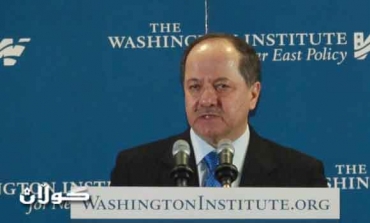
"It's important that the future government of Syria be a democratic coalition that protects the rights of Kurds and all other Syrians," Barzani said at a Thursday speaking event at the Washington Institute for Near East Policy.
He said the Kurdistan Regional Government (KRG) supports whatever dialogue and negotiations that the Syrian regime and the Syrian opposition may enter into and said that the safety and security of Syrian Kurds was a high priority. As for the Kurdistan National Council of Syria, a recently formed umbrella group representing Kurdish opposition to Syrian President Bashar al-Assad, Barzani said the KRG would help, but not with weapons.
"We are ready to support them, but not with military support or providing ammunition ... It could be moral support, political support, financial support. And we will use our influence to help solve their problems," he said. "It would be good for them to enter into talks and negotiations so they can reach an agreement with the other groups of the opposition."
"What we see right now, neither the current government not the opposition have anything decreed to provide for the Kurdish people," he said. "But that issue is left to them, so whichever way they conduct their negotiations, we will support the outcome of their negotiations."
Barzani's comments were starkly different than those of Iraqi Prime Minister Nouri al-Maliki, who said this week that Assad "will not fall" and said he was against any process that led to the overthrow of the Syrian regime.
Barzani said he met with President Barack Obama twice and also met with Vice President Joseph Biden on Wednesday, and told them that Maliki is consolidating power in a dictatorial way. He said Obama and Biden reassured him that the United States would remain committed to cooperation with Kurdistan and committed to helping Iraqi solve its serious internal political problems.
"Iraq is facing a serious crisis ... it's coming towards one-man rule," Barzani said. "We have a situation in Baghdad where one man is the prime minister and at the same time he is the commander in chief of the armed forces, he is the minister of defense, he is the minister of the interior, and he is the chief of intelligence. And lately, he has been communicating to the head of the Central Bank that that should also come under the power of the prime minister. Where in the world can you find such an example?"
Barzani called for a multiparty, multiethnic process to address the issue of power sharing in Iraq. If that process fails, Barzani said he would hold a referendum in Kurdistan to determine the way forward. He implied, but didn't say explicitly, that that referendum would be for Kurdish impendence.
"The current status quo in Baghdad is in no way our option and we will not accept that as an option," he said. "Otherwise, we will be obliged to go back to the people and have the people make their decisions."
The Maliki government is reneging on its agreements that allow Kurdistan to sign its own oil contracts and is taking total control of Iraq's armed forces, according to Barzani.
"The new Iraqi army needs to be formed on the basis of being an army of the country, not the army of an individual," he said.
Barzani said he disagreed with former Prime Minister Ayad Allawi's decision to publicly denounce Obama's selection of former NSC staffer Brett McGurk to replace Jim Jeffrey as U.S. ambassador to Iraq. Allawi said McGurk was too close to Maliki to be objective.
"Had Allawi consulted with me, I would have told him not to issue that statement. He has been nominated to be the U.S. ambassador to Iraq and he will implement U.S. policy," Barzani said.
Barzai also staunchly defended the innocence of fugitive Iraqi Vice President Tariq al-Hashemi, against whom Maliki's government has brought charges. Hashemi had been evading those charges in Kurdistan and is now in Saudi Arabia, though he has pledged to return to Iraq.
"He is still the vice president of Iraq. He has not been convicted, and this issue has been politicized," Barzani said, adding that Maliki had told him to help Hashemi escape Iraq, revealing the politicization of the issue.
"Why does Maliki send me a message so we should help him sneak out of the country? If he's a criminal, why should he be given that opportunity to sneak out? They wanted to show that everybody wants to respect the judicial system except for us."

